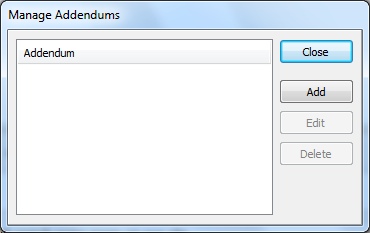
All of the personal checklists listed under Personal Checklists will be run when you click Run Personal Checklists or Check Ongoing Translation on the QA tab. You can also add an existing checklist with Checklist-> Add. In the Checklist Manager, you can create new Personal Checklists by choosing Checklist-> New when the cursor is placed on Personal Checklists group in the navigation tree. The Checklist Manager allows you to work with your Project and Personal Checklists.

ApSIC Xbench remembers the last set of personal checklists used across projects.

Instead they are saved to an ApSIC Xbench checklist file (.xbckl extension). Personal Checklists are not saved to the ApSIC Xbench project file. The Project Checklist is saved with the ApSIC Xbench project file (.xbp extension) and normally it contains checks that are specific of the project, such as checking if some untranslatable keywords have been accidentally translated. There are two types of checklists: Project Checklist and Personal Checklist. Actually, one useful means of adding a search into the checklist is by searching it first in the Search tab, and then clicking Add Last Search to Checklist in the Search Options pane of the main window. Since checklists are built on top of ApSIC Xbench search engine, anything that can be searched for in ApSIC Xbench can be added to a checklist. In the QA tab of the main window, you will be able to run these checklists against all files defined as ongoing translation in the ApSIC Xbench project. It is a very good practice to compile client feedback in checklists to make sure that no feedback is forgotten in subsequent deliveries of translations. Typically, you store in checklists common pitfalls, such as use of banned terms or expressions. Built on ApSIC Xbench search engine, checklists are a compilation of searches that can be run in batch to identify segments with problems. Regular Expressions and Microsoft Word WildcardsĬhecklists are a very useful Quality Assurance (QA) function in ApSIC Xbench.To do so, in Step 3 above you would select XLIFF file, hit Next and then under Files of type choose All files (.*) under the dropdown menu. If you are exporting to TMX, you will also need to specify the source and target language pairs.īy the way, the tool also accepts SDLXLIFF files, so you could, for example, grab a bunch of these files, convert them to TMX and import them back to your main TM. Under Output choose TMX or TXT as the export file type and select the location of the export file. Tick the relevant boxes in the Filtering Section. Then go to the Tools menu and select Export Items…Ħ. Locate the file on your machine and hit Nextĥ.


Select a file type from the list and click on AddĤ. One of the lesser-known features, however, is the ability to convert the main proprietary and open-source translation file formats to a TMX or a plain text file for further processing.ģ.
#Apsic xbench check free
ApSIC Xbench is a free QA tool that allows localization professionals to perform many checks typically available on full-fledged CAT/TEnT environments.


 0 kommentar(er)
0 kommentar(er)
